After being unable to find an international partner for a drama about an infamous interview with Margaret Thatcher, Baby Cow had to pull out all the stops to get Brian And Maggie made on a modest budget. Executive producer and Baby Cow chief executive Sarah Monteith explains how they did it
It seemed like the perfect time to develop the idea of adapting the infamous 1989 television interview between former Labour MP and journalist Brian Walden and then-prime minister Margaret Thatcher, which ultimately led to her political demise.
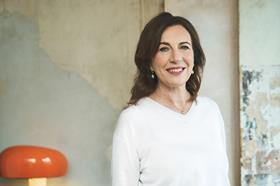
Steve Coogan (creative director at producer Baby Cow) and I could immediately see that the exchange said important things about the current state of democracy from the safety of the past.
The thought that Thatcher - an iconic but divisive figure – might help us reflect on something precious that may have been lost [direct political accountability] was particularly interesting.
Brian And Maggie also had a surprising intellectual love story fuelling it, which truthfully presents a woman in a way not previously seen. Channel 4 chief content officer Ian Katz was decisively on board and writer James Graham was excited by it – but the immediate question was, ‘How do we fund it?’.
“Nuanced editorial considerations can go out the window and the conversation becomes about whether it has obvious American legs”
C4 funded us substantially but, of course, we also sought co-production with an international partner – to no avail. Right now, there’s not enough money in the system, so people avoid taking risks and the question of whether something gets investment becomes much more of a tick-box exercise.
It’s understandable, but often means nuanced editorial considerations go out the window and the conversation becomes about whether an idea has obvious American legs. I’m being reductive to make the point, but it’s much harder to take risks than it was five years ago.
Adaptability is key
That said, we did get some extra money from distributor BBC Studios, but we didn’t co-produce. Without a big US buyer upfront, we’d have to prove our drama’s global appeal in the making of it. We certainly worked at the lower end of the drama budget scale.
We’re not alone – there is a huge need to produce things for less, and the more agile you can be to adapt to the current environment, the better you will do. Because Baby Cow has always moved between film and TV, and between drama and comedy, we are used to being adaptable to get something made.
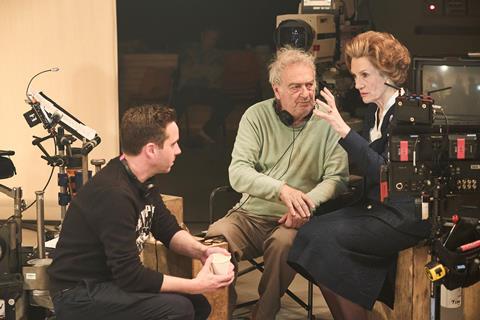
While we embrace traditional models (films The Lost King and Philomena and C4 drama Chivalry), we can be equally successful with a more limited model (our film The Ballad Of Wallis Island premiered at Sundance in January and our award-winning comedy portfolio is typically smaller budget). This creates an agile mindset, and we accept our budgets as they are, rather than what we would want them to be.
Our whole team is financially astute, from editorial development to production. We don’t go over budget – it’s just not an option for us – but, at the same time, we never compromise on how the show looks.
We’re very porous – we have a broader family that works with us, but we keep our central team relatively lean, allowing us to scale up or down.
When faced with a leaner budget, there are things to consider: reduced locations, picking those where lighting can be minimised, or limiting crowd scenes.
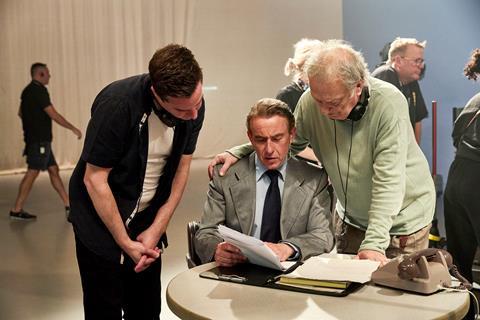
Most critical are choosing what to focus on, and team buy-in. Production budgets often creep over when people aren’t philosophically attuned to your ambition alongside the reality of the money you have. This has to be embraced from day one and requires heads of department with strong leadership and communication skills and a range of experience.
We are transparent about expectations when we engage people. Some will say a polite no, but others are up for the challenge. If each team is energised by the idea of their budget as an opportunity to be imaginative and deliver quality within the constraints, then it’s amazing what can be achieved.
Prioritisation is queen. It was critical to have heavyweight actors to play our real-life leads, a heavyweight writer to broaden out the story and make it accessible, and a heavyweight director to elevate it further. Brian And Maggie is a character-driven story with known protagonists, so the money had to feel seen on screen. We gave the actors a sure footing to deliver the essence of their characters through meticulous hair and make-up and costume.
Equally important was being authentic to the period – the colours, aesthetics and props needed to be precise to give that premium feel, so cost saving was directed elsewhere.
Practical solutions
There are ways to save money that audiences really don’t notice, even if we in the industry feel the loss. In the opening scene, Walden addresses the House of Commons as an MP. We didn’t build a full set of the Commons. Our focus here is on Steve’s delivery and the script, we could make do without a wide shot of the location.
Our relationships within the industry also really helped – a tip-off that a studio was going to be demolished ensured a good price. We also worked collaboratively with our post-production partner Molinare on ideas for a cost-effective edit. We spoke up front and early to avoid compromising on quality.
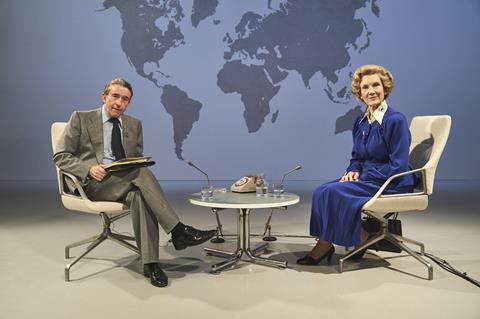
Going forward, I believe that producers need to create for the tariff that’s there. None of us can rely on previous levels of international investment returning – we must quickly accept the market we’re in. You can waste a lot of time trying to find extra funding, and that is time not spent developing shows. In a politically and culturally energised year, there were so many good reasons to make this show now for the budget on the table, rather than delay.
It’s fascinating to look more roundly at a female leader and her decision-making up to and during an interview that precipitated her downfall.
To me, like many, Thatcher was a problematic leader, who disappointingly didn’t do a lot for women either, but we see her approach her role with dedication, respect and seriousness. And we find her humanity. We witness qualities we miss in today’s leaders and influencers, no matter how uncomfortably this may sit. And this conflict – as ever – creates compelling TV.
Brian And Maggie airs on C4 at 9pm on 29 January. BBC Studios will present the series to global customers at BBC Studios Showcase (24-25 February).























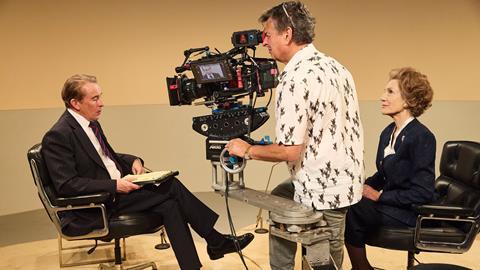






No comments yet